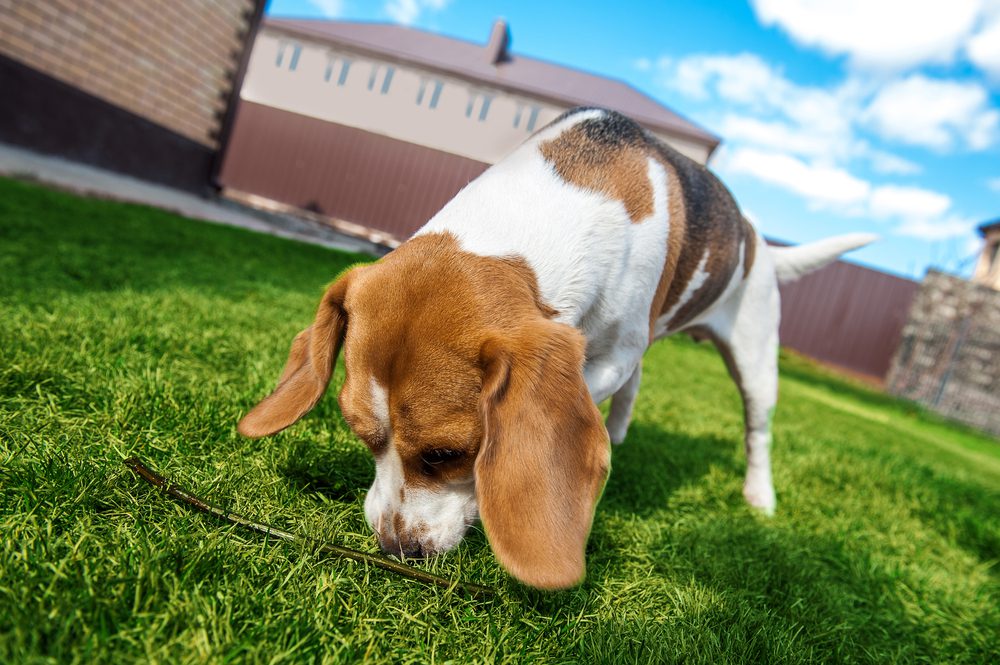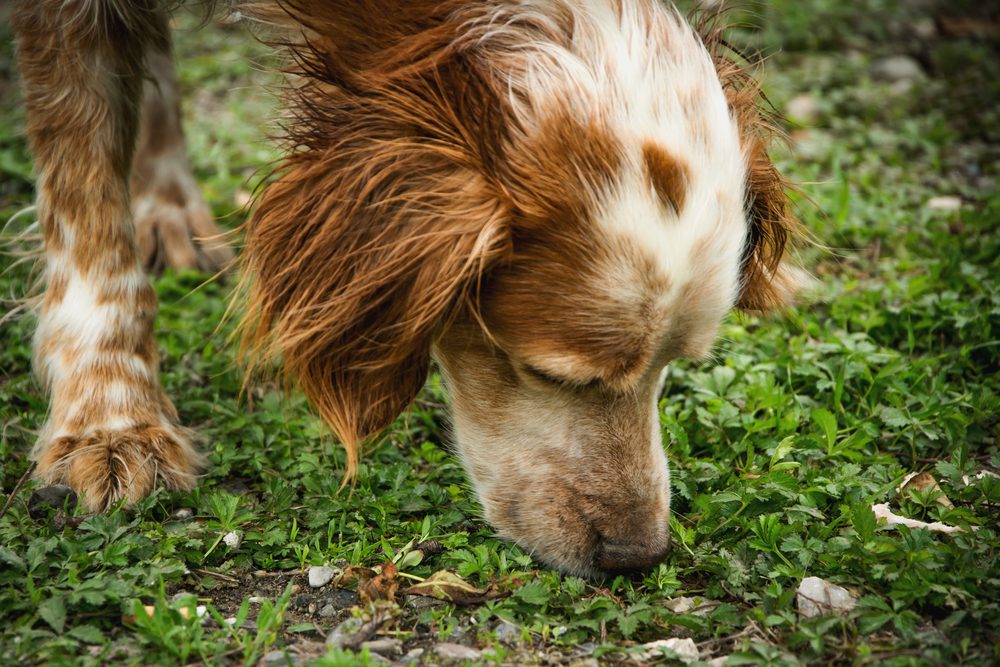You’ve probably heard by now the old saying “It smells like a wet dog”. Poor little pups—they get all the blame for all the bad odors, don’t they? Well, in reality, dogs shouldn’t smell bad. Even if some dog parts shouldn’t smell like roses, a bad smell usually signals a problem.
While for some people this might come off as a bit gross, the truth is that most dog owners actually like the way their dog smells. It smells like home, love, and good memories. In fact, I still remember how my dog used to smell (he passed away), and every time I go down memory lane, I remember that smell, and it brings me joy.
It also makes me cry, but that’s another story. Luckily, some vets are so experienced that they can tell what the problem is just by smelling your dog. It can be a pungent, yeasty smell that often shows bad skin issues, yeasty ear wax, or a potent, sharp, spoiled milk smell that usually refers to an ear infection.
Generally, abnormally bad breath is the best indicator of underlying health problems. Some vets might even notice after many years of practice that particular breeds (like hounds) have a particular smell, as do cocker spaniels, and so on. No dog breed smells the same.
Dogs’ smell is unique, just like ours, because it is generally caused by oils in our skin or our diet. For example, if you smell a dog’s feet, you’ll notice that they smell like fried chips or popcorn. It isn’t necessarily a bad smell, but some people hate it.
A dog’s sweat goes through his feet, and we all know that no sweaty area smells nice. But if you put your nose in your dog’s fur, you shouldn’t smell anything bad. Bad odors are usually signs of serious illness. In fact, if your dog smells bad, here’s why that might be:

Ear infection
There are various reasons why a dog has smelly ears. It might be due to a lack of cleanliness, perpetual moisture (which might be from swimming), excessive hair inside the ear canal, and the list goes on. Also, the degree to which the ears can smell is very important.
For example, a light, yeasty smell could mean that your dog needs to have his ears cleaned. An ear infection would have a much stronger and sickening smell, and it should be immediately reported to your vet. Stinky, infected ears can be easily recognized from miles away.
You might think that the dog stinks, but if you’re carefully inspecting the issue, you might find that the poor pup doesn’t stink, but the smell that’s coming from his ears is killing.
Skin issues
Some dogs suffer from canine seborrhea, which is a condition that might result in a musty, stinky cheese smell because of all the buildup of sebum and yeast in their skin. His odor is probably what will prompt a visit to the vet, because you can’t really live around it.
Once it is diagnosed, your dog will be kept under a rigid regime of bathing, medicine, and ear cleaning. You need to follow this schedule religiously; otherwise, it won’t work. There’s genuinely no cure for canine seborrhea, but it can be easily managed.
You will notice that your dog will smell normal again in no time. Even if this is one of the most common causes, canine seborrhea is only one of the many skin issues that might cause an odor. There are also allergies, hormonal imbalances, fungus, and even parasites that might lead to excessive scratching and ultimately licking, which causes bacterial infection.
What’s even worse is that a secondary bacterial infection will only do more harm. Any kind of unpleasant smell on your dog’s skin should be immediately brought to your vet’s attention before it starts progressing into something way worse.
There are many dogs with overlapping folds in their skin, such as bulldogs, Shar Pei, pugs, and some mastiffs. All these folds usually retain a lot of moisture and microorganisms, which results in an unpleasant buildup of infection-causing bacteria.
Skin folds usually require proper care and cleaning to keep them as dry and odor-free as possible. If you notice that your dog’s skin is a bit irritated, red, or even smelly around those folds, it might be too late, as dermatitis or even an infection might have already been installed.
Also, keep in mind that over-bathing in the hope that the odor will go away might cause your dog’s skin to be left without oil, which also leads to skin irritation. The best thing you can do is ask your vet how to reach the needed balance and keep your dog’s skin as healthy as possible.

Bad breath
Bad breath is basically the result of a buildup of odor-inducing bacteria in your dog’s mouth. Even so, it could mean something worse. Persistent bad breath might be caused by a certain abnormality in your dog’s respiratory system, gastrointestinal tract, or even internal organs.
In fact, some diseases might cause your dog to have bad breath, and they’re very serious ones. I’m talking about diabetes, kidney disease, and even liver disease. As a general rule, the issue usually comes from poor dental health, mixed with heavy tartar buildup, dental infection, and even periodontal disease. None of these should be taken lightly, so pay attention to the signs!
Anal glands
Also described as a “fishy odor”, anal gland smell is not exactly for the faint of heart. Anal glands are tiny secretory glands on both sides of a dog’s rectum, and they are one of the most natural and necessary parts of your dog’s anatomy.
However, many dogs suffer from all kinds of issues with them because these glands can cause a lot of pain, oftentimes even “mess”, and the usual nasty odor. Just for your general knowledge, normal and healthy anal glands shouldn’t emit any kind of odor.
Unless, of course, you are a dog and that’s your way of interacting with other dogs—by sniffing them out. However, if there’s something wrong with those glands, you can tell by the overall smell, in which case you should pay a visit to the vet as soon as possible.
Gas attack
If you like gathering with your friends who also have dogs on the occasional Sunday rendezvous, I bet someone always brings up how bad his or her dog’s gas smells. In reality, occasional burping, gurgling, and gas are completely normal, but excessive episodes might show a problem.
Also, a foul and putrid smell is not something you should sleep on. When your dog has constant and daily gas, it might be a sign that something is off, and you should go to the vet. It either has something to do with a change in his diet or a serious treatment of inflammatory bowel disease. And now, let’s attack the elephant in the room.
We all know that some dogs have earned their reputation as stinky little creatures with gas issues. I’m talking about pugs, bulldogs, and boxers. Well, that’s mainly because of the structure of their faces.
Those sweet, squished-up noses that you love so much oftentimes cause them to suck in the air even when they eat, which leads to way too much air in their digestive system. There are a couple of tricks to help these furry guys consume less air, which include raising their bowls or giving them more probiotics.

Urinary tract infection
If your dog smells like urine, it might be due to a urinary tract infection. I know this is the kind of issue that a human might have to deal with, but in reality, dogs suffer from it too. And yes, it’s just as miserable, only they can’t actually cry about it.
If we’re talking about a bladder or urinary tract infection, then you might notice other relevant signs, such as increased demands to “go outside”, drinking more water, and straining when urinating.
Also, in serious cases, we’re talking about blood in the urine, too. Whatever the circumstances, any kind of abnormal urine odor will require a trip to the vet, as there are many other reasons why their urine might smell bad, such as kidney stones, diabetes, and even a nasty fungal infection. All of these require urgent medical attention.
No grooming
This probably goes without saying, but a dirty dog stinks. However, some people think that bathing and grooming their dog on a regular basis is too much of a hassle, and if you’re one of them, you should look for a pet resort. I’m sure there are plenty in your area!
When it’s bath time, you should also clean his ears and brush his teeth, and you will see that, unless there’s any other health issue involved, your dog will smell wonderful. If you’re still stuck at the “brushing the teeth” part, let me explain.
Brushing your dog’s teeth will scare away any unpleasant smells between baths. There will be no dirt, dead skin cells, or dried saliva. You might be surprised at how big of a difference it makes after a simple brush.
Wet dog
Now, since we’ve pretty much covered all the serious causes of why your dog might smell, we can finally go to the wet dog thing. You should know by now that it’s totally real, and it’s worth mentioning that excessive washing and brushing might invite microorganisms such as yeast and bacteria to live freely in your dog’s fur.
However, as long as your dog’s fur is dry, there shouldn’t be any unpleasant smell. Or that’s the logical way of thinking, right? Well, it seems that those microorganisms leave all kinds of fecal matter and organic chemicals, and that’s why your dog’s fur smells the minute it gets wet.
If you’re curious to learn more about dogs, then you’ll definitely love this: Your Dog CAN Eat These 10 Human Foods Safely With You











